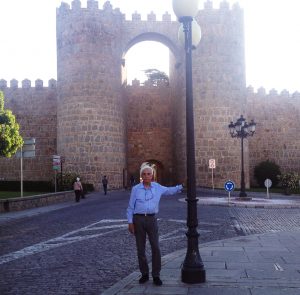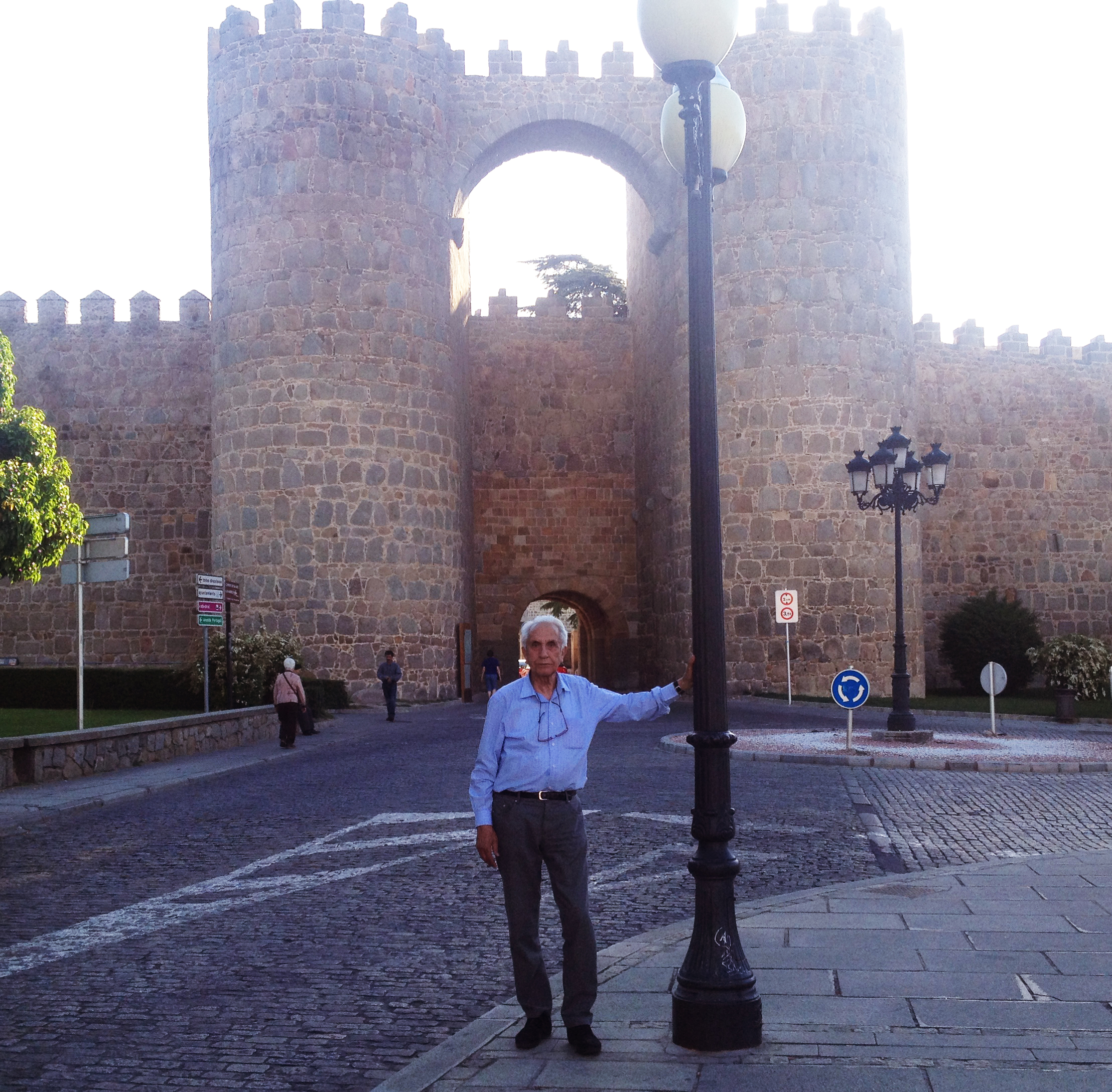
Manuel Mateos de Vicente graduated from Iowa State with a master’s in civil engineering in 1958 and a Ph.D. in civil engineering in 1961. He lives in Moraleja, near Madrid, Spain, and is an expert in hydraulic fluids (he has written 12 books on the subject), clay minerals and their atomic composition, and traffic safety. Even though he has been retired for some time, Mateos, who is now 86 years old, continues to pursue research opportunities, applying engineering principles to different disciplines.
1. What encouraged you to attend Iowa State?
I always admired American engineering, but as an undergraduate it was too expensive to study abroad. After graduating from college in Spain, I got my first job, where I heard about scholarships to study in the United States. I applied for a scholarship and came to Iowa State to study civil engineering. I chose civil engineering because of my father, who worked with granite in buildings and bridges, and he was also a contractor. He inspired me to begin working with him at 11 years old. While at Iowa State, I made many great memories, including meeting friends I still have today.
2. Tell me about your career and research.
I have a strong background in geotechnical engineering and other subjects, publishing 600 papers and 30 books on technical and non-technical topics. Several of these are in English and cover my research at ISU, which involved using earth and fly ash as construction materials that have a positive impact on society. I discovered some fly ashes were true cements, and these are now used by the millions-of-tons per year. That means less cement to use and less CO2 to the atmosphere.
3. What does your research focus on now?
I studied the origin of Alzheimer’s disease, which has affected me since my stepmother died of the disease two years ago. I was able to present my Alzheimer’s research to Congress in Boston last year, under the title “The Role of Hydrofluids on the Origin of Alzheimer’s Disease as Well as in Multiple Sclerosis and Osteoporosis.”
Once I knew the origin of Alzheimer’s, which I found is antagonistic to cancer, my research reached the point where it needs to be tested commercially and applied. I began researching health issues many years ago. On non-allopathic medicine, I have gathered 300 treatments or suggestions in a web book titled “La Salud,” which is in Spanish.
4. What is the best thing about your career?
I love being able to apply solutions to soil and traffic problems at a lower cost than other solutions (in some cases, the cost is thousands less). I also enjoy traveling to other countries as part of my work or to give conferences. My career has taken me to 25 countries, and I wrote a book on their protocols and dangers. As an engineer, I realized I wanted to learn more about humanities, and my career gave me the freedom to study anthropology for two years among other non-technical subjects. This realization also inspired me to study linguistics, like the history of the Basque people in Spain, and write poems in English, Spanish and French.
My connection to America remains strong. My sons were also able to study in the USA. Eric has a master’s degree from Rensselaer Polytechnic Institute, located in the town of our supplier of hydraulic valves. Axel holds two undergraduate degrees from Saint Louis University (as they have a campus in Madrid) and a master’s degree from Loyola University, and he worked for two years in the United States. This year, two former graduate students visited me to remember our time together in Ames.
